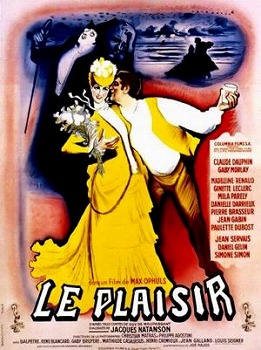 |
| Benoît Ferreux, Ave Ninchi, Lea Massari, and Daniel Gélin in Murmur of the Heart |
Laurent Chevalier: Benoît Ferreux
Clara Chevalier: Lea Massari
Charles Chevalier: Daniel Gélin
Thomas Chevalier: Fabien Ferreux
Marc Chevalier: Marc Winocourt
Augusta: Ave Ninchi
Father Henri: Michael Lonsdale
Helene: Jacqueline Chauvaud
Daphne: Corinne Kersten
Freda: Gila von Weitershausen
Director: Louis Malle
Screenplay: Louis Malle
Cinematography: Ricardo Aronovich
Production design: Jean-Jacques Caziot
There's a very dated play from 1953 called
Tea and Sympathy by Robert Anderson that was made into an even more dated film by Vincente Minnelli in 1956 about a prep-school boy whose effeminacy makes him the target for gibes about homosexuality. To prove to the boy that he's a real man (i.e., not gay), the headmaster's wife offers herself sexually to the boy, telling him as she unbuttons her blouse and the curtain falls, "Years from now, when you speak of this, and you will, be kind." The film version, responding to Production Code strictures, adds a coda in which we learn that the boy is now married -- i.e., "cured." I thought of
Tea and Sympathy as I watched
Murmur of the Heart, whose very different problem -- adolescent horniness -- has a very different cure -- incest.
Murmur of the Heart has always been something of a critical darling, from Pauline Kael's description of it as an "exhilarating high comedy" to
Michael Sragow's essay for the Criterion Collection proclaiming that it "boasts the high spirits to match its high intelligence." And for the most part I concur: Lea Massari's joyously earthy performance as the mother is beautifully detailed, and Benoît Ferreux's endearing gawkiness brings the character of Laurent to full life. Louis Malle's script and direction keep things moving splendidly, never allowing things to bog down into "message moments" about priestly pedophilia -- years before that became the stuff of headlines -- or the parallels between the French involvement in Vietnam and that of the Americans, which was very much in the headlines when the film was made. And yet for me the ending of
Murmur of the Heart seems as hollow as that of
Tea and Sympathy. After having sex with his mother, the product of his attempt to console her for a breakup with her lover, he goes out to have sex with one of the girls he has met at the spa hotel where they're staying -- as if to prove that he's "straight," though in a different way from that of the
Tea and Sympathy protagonist. There's an awkwardness in the setup -- the shocking taboo of incest -- for what turns into a feel-good ending gag: The whole family, including the mother, the cuckolded father, the bullying older brothers, and Laurent himself, join in uproarious laughter at the fact that Laurent has gotten laid. If what had gone before the incest scene had not been so splendidly wrought -- if, in fact, the incest scene itself hadn't been so tastefully handled -- would we really feel satisfied with this ending? For that matter, are we today really content with the film's ongoing sexism, including the scene with Laurent in the brothel and an uncommonly pretty prostitute? Would anyone ever dare to make a comedy that concluded with a girl whose quest to lose her virginity ends with her having sex with her father? Or is it that what makes
Murmur of the Heart a successful film is that it raises all these questions without belaboring us with them? It's a virtual catalog of all of the social and sexual hangups that continue to make growing up such a trial. That it achieves this with, yes, "high spirits" and without preachiness may be its real virtue.
Watched on Filmstruck Criterion Channel


